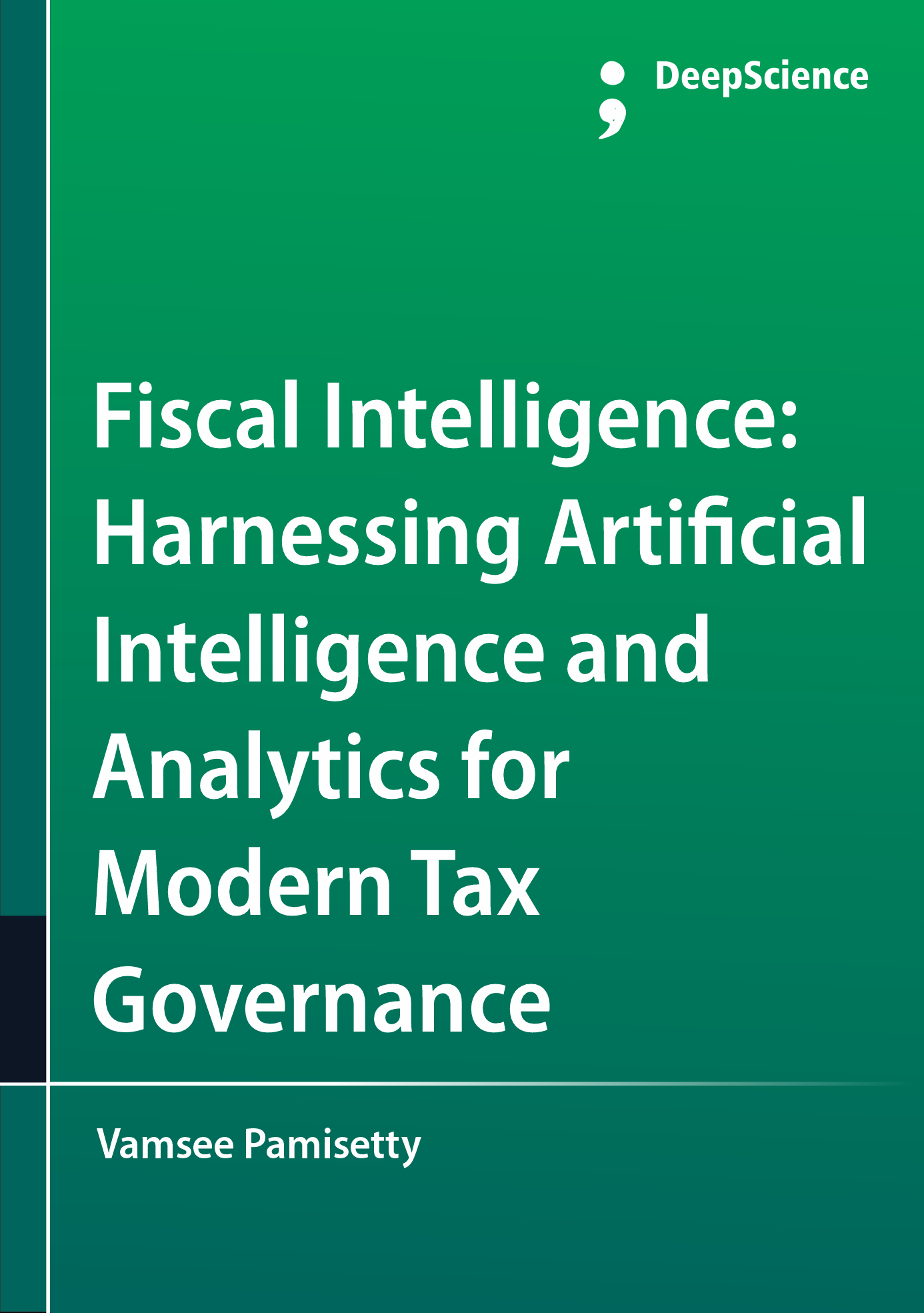Fiscal Intelligence: Harnessing Artificial Intelligence and Analytics for Modern Tax Governance
Keywords:
Fiscal Intelligence, Artificial Intelligence, Taxation, Tax Analytics, Digital Transformation, Tax Governance, Machine LearningSynopsis
Tax systems around the world are undergoing a dramatic transformation. With increasing complexity, evolving regulations, and the growing demand for transparency, traditional methods of tax governance are being pushed to their limits. In this era of digital disruption, Fiscal Intelligence: Harnessing AI and Analytics for Modern Tax Governance offers a timely exploration of how artificial intelligence (AI) and advanced analytics are redefining the future of tax administration and compliance.
This book is born out of the urgent need to modernize tax governance through smarter, data-driven solutions. AI and analytics are no longer futuristic concepts—they are actively reshaping how tax authorities detect fraud, assess risk, and ensure compliance with greater efficiency and accuracy. Meanwhile, businesses are leveraging these same technologies to optimize reporting, minimize errors, and stay ahead of regulatory demands.
Our aim is to provide a comprehensive yet accessible guide to the evolving landscape of fiscal intelligence. We examine the technological foundations of AI and data analytics, explore their practical applications in tax policy and enforcement, and present real-world examples of success from both public and private sectors. Through this lens, we highlight how intelligent systems can drive fairness, transparency, and agility in modern tax governance.
Whether you are a tax professional, policy maker, data analyst, or a curious reader seeking to understand the next frontier in financial regulation, this book is designed to inspire new thinking and foster innovative approaches to long-standing challenges.
As governments and organizations embrace digital transformation, the future of tax is not just about compliance—it’s about strategy, foresight, and resilience. We invite you to step into this intelligent era of tax governance, where technology and policy meet to create smarter, more responsive fiscal systems.
Chapters
-
Establishing a robust framework for tax compliance in the era of digital transformation
-
Leveraging predictive analytics and machine learning for advanced fraud detection in tax systems
-
Utilizing big data to strengthen financial oversight and increase transparency in public revenue
-
Achieving seamless government financial operations through strategic IT system integration
-
Implementing artificial intelligence-powered automation to optimize compliance across the taxpayer lifecycle
-
Transforming revenue forecasting and risk management through data-driven predictive modeling
-
Enhancing fiscal impact analysis by embedding intelligent algorithms into budgetary planning
-
Deploying artificial intelligence-based decision support systems to elevate efficiency in public financial management
-
Modernizing unclaimed property administration through digital intelligence and workflow automation
-
Building scalable and secure tax administration infrastructure using cloud computing platforms
-
Safeguarding data integrity and trust in artificial intelligence-augmented government financial ecosystems
-
Navigating the future of taxation and public finance in the age of artificial intelligence and analytics













